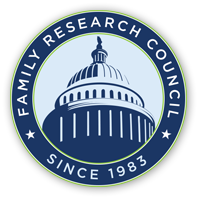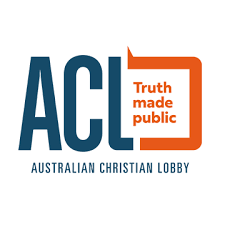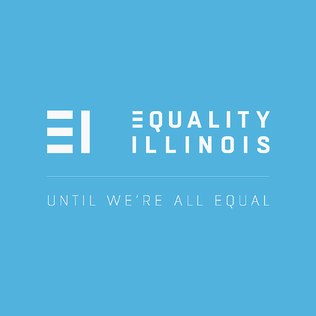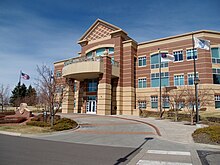Focus on the Family is a fundamentalist Protestant organization founded in 1977 in Southern California by James Dobson, based in Colorado Springs, Colorado. The group is one of a number of evangelical parachurch organizations that rose to prominence in the 1980s. As of the 2017 tax filing year, Focus on the Family declared itself to be a church, "primarily to protect the confidentiality of our donors." Traditionally, entities considered churches have been ones that have regular worship services and congregants.

James Clayton Dobson Jr. (born April 21, 1936) is an American evangelical Christian author, psychologist, and founder of Focus on the Family (FotF), which he led from 1977 until 2010. In the 1980s, he was ranked as one of the most influential spokesmen for conservative social positions in American public life. Although never an ordained minister, he was called "the nation's most influential evangelical leader" by The New York Times while Slate portrayed him as a successor to evangelical leaders Jerry Falwell and Pat Robertson.
The Christian right, otherwise referred to as the religious right, are Christian political factions characterized by their strong support of socially conservative and traditionalist policies. Christian conservatives seek to influence politics and public policy with their interpretation of the teachings of Christianity.

The Family Research Council (FRC) is an American evangelical 501(c)(3) non-profit activist group and think-tank with an affiliated lobbying organization. FRC promotes what it considers to be family values. It opposes and lobbies against access to pornography, embryonic stem-cell research, abortion, divorce, and LGBT rights—such as anti-discrimination laws, same-sex marriage, same-sex civil unions, and LGBT adoption. The FRC has been criticized by media sources and professional organizations such as the American Sociological Association for using "anti-gay pseudoscience" to falsely conflate homosexuality and pedophilia, and to falsely claim that the children of same-sex parents suffer from more mental health problems.
The Alliance Defending Freedom (ADF), formerly the Alliance Defense Fund, is an American conservative Christian legal advocacy group that works to expand Christian religious liberties and practices within public schools and in government, outlaw abortion, and oppose LGBTQ rights. ADF is headquartered in Scottsdale, Arizona, with branch offices in several locations including Washington, D.C., and New York. Its international subsidiary, Alliance Defending Freedom International, with headquarters in Vienna, Austria, operates in over 100 countries.

Opposition to legal rights for lesbian, gay, bisexual, and transgender (LGBTQ) people exists throughout the world. LGBT rights opponents may be opposed to the decriminalization of homosexuality; laws permitting civil unions or partnerships or supporting LGBT parenting and adoption, LGBT military members, access to assisted reproductive technology, and access to sex reassignment surgery and hormone replacement therapy for transgender individuals.
The Arlington Group was a coalition uniting the leaders of prominent Christian conservative organizations in the United States. Founded in 2002 principally through the efforts of American Family Association President Donald Wildmon and Free Congress Foundation Chairman Paul Weyrich, the group sought to establish consensus goals and strategy among its members and translate its combined constituency into an overwhelming force within the Republican Party, particularly at its highest levels. Its membership and purpose overlapped to a high degree with the Council for National Policy; but the group is much more narrowly focused, choosing to emphasize such issues as same-sex marriage, abortion, and confirmation of like-minded federal judges.

The Australian Christian Lobby (ACL) is a conservative right-wing Christian advocacy organisation based in Canberra.
Social conservatism in the United States is a political ideology focused on the preservation of traditional values and beliefs. It focuses on a concern with moral and social values which proponents of the ideology see as degraded in modern society by liberalism. In the United States, one of the largest forces of social conservatism is the Christian right.

Minnesota Family Council (MFC) is an American Christian organization in Minneapolis, Minnesota, founded in 1983. MFC is a family policy council affiliated with Focus on the Family and Alliance Defending Freedom. The organization advocates for the passage of socially conservative policies in the state. It also produces voter guides to encourage its supporters to elect conservative lawmakers. After registering as a political action committee in 2011, MFC has lobbied against abortion and same-sex marriage, and in favor of single-sex school bathroom and athletics policies.

Equality Illinois (EI) was founded in 1991 to work towards building a better Illinois by advancing equal treatment and social justice through education, advocacy, and protection of the rights of the LGBTQ community.
Family Policy Alliance (FPA), formerly CitizenLink and Focus on the Family Action, is an American conservative Christian organization that acts as the lobbying arm of Focus on the Family at the level of state government politics. It is an umbrella organization for an "alliance" of state organizations known as Family Policy Councils which are state-level Focus on the Family affiliates.
Nebraska Family Alliance (NFA) is a fundamentalist Christian 501(c)(3) organization based in Lincoln, Nebraska. It most prominently lobbies against LGBT rights, such as same-sex marriage and LGBT adoption. The NFA also seeks legal restrictions on abortion, and to change public policy on gambling and human trafficking. It advocates for traditional family structures and gender roles.
Colorado Family Action (CFA) was a Christian fundamentalist lobbying organization founded in 2007. It opposed gay marriage or domestic partnership, gay adoption, and adoption by unmarried people. The organization advocated for conversion therapy, the pseudoscientific practice of trying to change sexual orientation. It fought against birth control access and legal marijuana.
Center for Christian Virtue (CCV) is a lobbying organization focused upon implementing conservative Christian sexual morality in public policy. It was originally known as Citizens for Community Values until Feb 2021. It operates primarily in the US state of Ohio and is the Family Policy Council for that state, with branches in Indiana, Wisconsin, and Kentucky.
Family Foundation of Virginia is a socially conservative and Christian fundamentalist lobbying organization headquartered in the US city of Richmond, Virginia. It was focused originally on opposition to sex education. It has expanded to opposition to the Equal Rights Amendment, nondiscrimination policies, and same-sex marriage. The organization supports legal conversion therapy for minors and increased legal restriction on abortion.
Missouri Family Policy Council (MFPC) is a Christian fundamentalist lobbying organization headquartered in suburban St. Louis. It is the Focus on the Family affiliate for Missouri. The affiliate has also gone by the names Family Policy Center and Family Policy Alliance of Missouri.
Family Policy Alliance of Kansas is a conservative Christian lobbying group and the state affiliate of Family Policy Alliance in Kansas. The affiliate was previously known as Kansas Family Research Institute.






